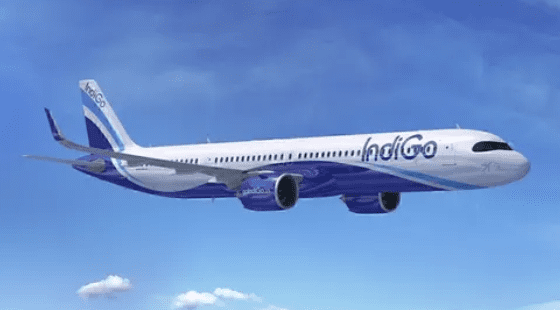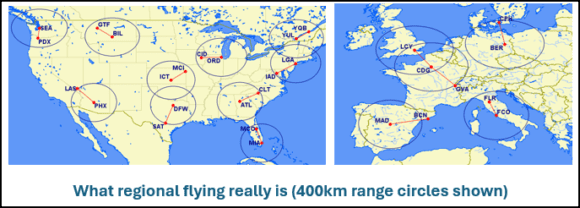
Indigo A321xlr
In December, IndiGo will take delivery of its first Airbus A321XLR — a single-aisle jet with the stamina to fly up to 11 hours nonstop. Just weeks later, in January, the aircraft will debut on a symbolic new route: nonstop services from Delhi and Mumbai to Athens, operated six times a week. Three flights will run from each city, marking the start of what IndiGo itself sees as a new chapter in its international expansion.
Network Phases
This isn’t just another aircraft induction. It represents what can be called IndiGo’s “fourth phase” of network growth. When the airline launched in 2006, it built its reputation on a singular focus: flying Airbus A320s across India with unmatched punctuality and consistency. The second phase began when it introduced ATR turboprops to tap into regional connectivity. The third came when IndiGo turned to widebody aircraft, leasing Boeing 787s from Norse Atlantic to test long-haul markets. And now, with the A321XLRs, the airline is stretching into medium-haul territory — Europe, Southeast Asia, and Africa — like never before.
IndiGo’s Global Ambitions
Earlier this year at the IATA AGM in Delhi, IndiGo’s chief executive Pieter Elbers outlined the vision in unmistakable terms. The airline, he said, plans to launch nonstop flights to 10 new international destinations in 2025–26, including Manchester and London in the UK, Amsterdam in the Netherlands, Copenhagen in Denmark, Siem Reap in Cambodia, Athens in Greece, and four cities in Central Asia. Elbers hinted at the time that Athens could be the first.
The airline estimates that about 70 percent of India–Europe traffic is currently controlled by European operators, with Indian carriers accounting for just 30 percent. Closing that gap is now a strategic priority.
“So the opportunity to expand in that region is just very obvious for us,” Elbers said then.
The playbook is already unfolding. Nonstop services to Amsterdam, Copenhagen, and Manchester were launched using the leased Norse Atlantic 787s. London via Heathrow will be added this winter. With Athens joining the map in January, IndiGo expects its international network to grow from 40 destinations today to 50 by March.
Partnerships to Strengthen the Network
IndiGo also recognizes that building an international network differs significantly from expanding domestically, which is why it has been moving aggressively on codeshare partnerships.
For Greece, IndiGo has signed a codeshare with AEGEAN. Under the deal, AEGEAN customers will gain wider access to destinations across India and South Asia as the airline’s “A3” code is added to a large number of IndiGo flights. In return, IndiGo’s “6E” code will be placed on AEGEAN’s domestic and European services from Athens International Airport. AEGEAN itself has announced plans to launch flights to India by March 2026.
“This step expands AEGEAN’s footprint beyond Europe into one of the world’s most dynamic markets, strengthening the bridge between Greece and India,” Eftichios Vassilakis, Chairman of AEGEAN, said in a joint statement. “By combining IndiGo’s extensive domestic network with AEGEAN’s European reach, we offer to our passengers more choices and convenience, along with a seamless travel experience. We look forward to joining forces with IndiGo and create new opportunities for cultural, business and tourism exchanges.”
Elsewhere, IndiGo has tied up with Delta, Air France–KLM, and Virgin Atlantic. These arrangements expand IndiGo’s connectivity to over 30 cities across Europe and North America via hubs in Heathrow, Amsterdam, Manchester, and Copenhagen, preparing to challenge arch-rival Air India. For a carrier that is still building brand recognition in overseas markets, these codeshares are as critical as the aircraft themselves.
Challenges on New Routes
Yet challenges loom. Georgia, which IndiGo connects with its key workhorse A320neo, became the subject of controversy this week after a social media post alleging mistreatment of Indian travellers went viral. According to the account, Indians were made to wait in freezing temperatures on pavements “like cattle,” denied food and washrooms, had their passports confiscated, and were stopped from filming. “They were recorded as if they were criminals,” the post read.
Another user added: “Contrary to popular belief, Indians are not treated nicely in Eastern Europe. You would be surprised to know that there have been more instances of racial profiling in Russia, Ukraine, Poland, and Armenia.”
The comments highlight a reality IndiGo will have to grapple with: while cosmopolitan hubs such as London or Amsterdam may absorb Indian traffic with ease, newer gateways in Eastern Europe and Central Asia could bring cultural and regulatory frictions.
The Bigger Picture
For now, though, the momentum is with IndiGo. The arrival of the A321XLR — the first in India — gives it an edge that competitors lack. Multiple deliveries are expected in the first year, enough to blanket much of southern Europe, while the Boeing 787s take care of the north.
Two decades after it disrupted Indian aviation with its no-frills A320 flights, IndiGo is preparing to step onto the global stage as the country’s first true pan-European airline.
Views: 260



